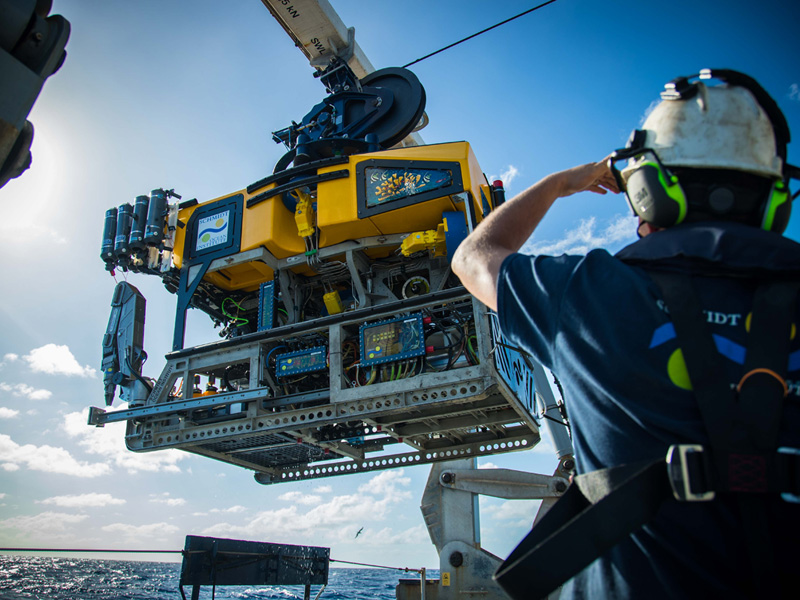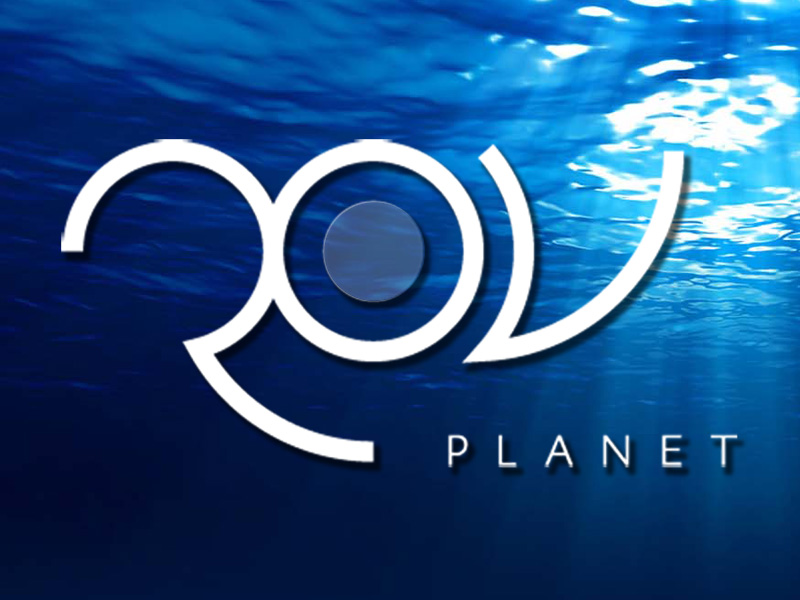
Ocean Robotics Planet Articles
Articles for Tag or Tags: Research Vessel Falkor
Number of matching Articles: 7
Scientists Explore Seamounts in Phoenix Islands Archipelago, Gaining New Insights into Deep Water Diversity and Ecology
09.07.2021
Marine scientists aboard Schmidt Ocean Institute’s research vessel Falkor have identified likely new marine species and deep sea organisms on nine seamounts that were explored for the first time in the remote Phoenix Islands Archipelago. In a 34-day expedition that ended today, scientists also conducted high-resolution seafloor mapping of more than 30,000 square kilometers and video exploration of five additional seamounts.
New Partnership Between Schmidt Ocean Institute and Intergovernmental Oceanographic Commission of UNESCO to Support Ocean Decade
11.12.2020
The Intergovernmental Oceanographic Commission of UNESCO (IOC-UNESCO), the United Nations body responsible for championing global ocean science and services, announced today a new partnership to work together with philanthropic non-profit, Schmidt Ocean Institute to advance the United Nations Decade of Ocean Science for Sustainable Development.
Australian Scientists Discover New Corals on most Comprehensive Deep Sea Study of Great Barrier Reef and Coral Sea Marine Parks
09.09.2020
For the first time, scientists have viewed the deepest regions of the Great Barrier Reef Marine Park, discovered five undescribed species consisting of black corals and sponges, and recorded Australia’s first observation of an extremely rare fish.
First Completely Remote At-Sea Science Expedition in Australia`s Coral Sea Marine Park Discovers New Corals and Possible Speices Never Before seen
25.06.2020
Scientists working remotely with Schmidt Ocean Institute, one of the only at-sea science expeditions to continue operating during the global pandemic, have completed a first look at deep waters in the Coral Sea never before seen. The Australian science team discovered the deepest living hard corals in Eastern Australian waters, sighted fish in regions where they had never been found before, and identified up to 10 new marine species of fish, snails, and sponges.
Unexplored Ocean Depths Bustling with Life, Despite Extreme Conditions
21.12.2016
Schmidt Ocean Institute’s new underwater vehicle SuBastian completes its first expedition discovering new hydrothermal vent sites and possible new species in the Mariana Back-Arc, an extreme deep-ocean environment.
APRA HARBOR, GUAM – A team of leading geologists, chemists, and biologists aboard research vessel Falkor have just finished surveying the largely unexplored Mariana Back-Arc for life at depths greater than 13,000 feet.
Dr. David Butterfield, JISAO, University of Washington, and Dr. William Chadwick, NOAA-PMEL and Oregon State University, led the group to the Back-Arc; returning for the second phase of a two-part exploration of the region.
In 2015, the team of scientists located new hydrothermal vents in the Back-Arc region, including evidence of recent lava flows. This year, the team returned to these vent systems with the new remotely operated vehicle (ROV), SuBastian, to characterize their water chemistry and biodiversity. The new results fill a gap in knowledge about the biogeography of these unique deep-sea ecosystems and has implications for how tectonic setting influences the composition of chemosynthetic animal communities worldwide.
First take off of unmanned aircraft scheduled from research vessel Falkor
13.10.2016
Research vessel Falkor leaves Darwin today to explore the poorly understood air-sea
interactions across the Indian and Pacific Ocean. This research is very important in understanding the ocean’s role in global climate change. The exchange of energy and matter between the atmosphere and the ocean are particularly onerous requirements, and have largely been neglected in climate research. Chief Scientist Dr. Oliver Wurl, from the University of Oldenburg and his international team of scientists from Germany, the United States, and United Kingdom plan to gain new insight during this 31-day expedition.
Virtual Reality Technology Reveals Underwater Vents in New Ways
04.04.2016
Scientists aboard Schmidt Ocean Institute’s research vessel Falkor have developed the first 3D model of an entire
hydrothermal vent field for Virtual Reality, covering the largest area of seafloor ever imaged that way.










